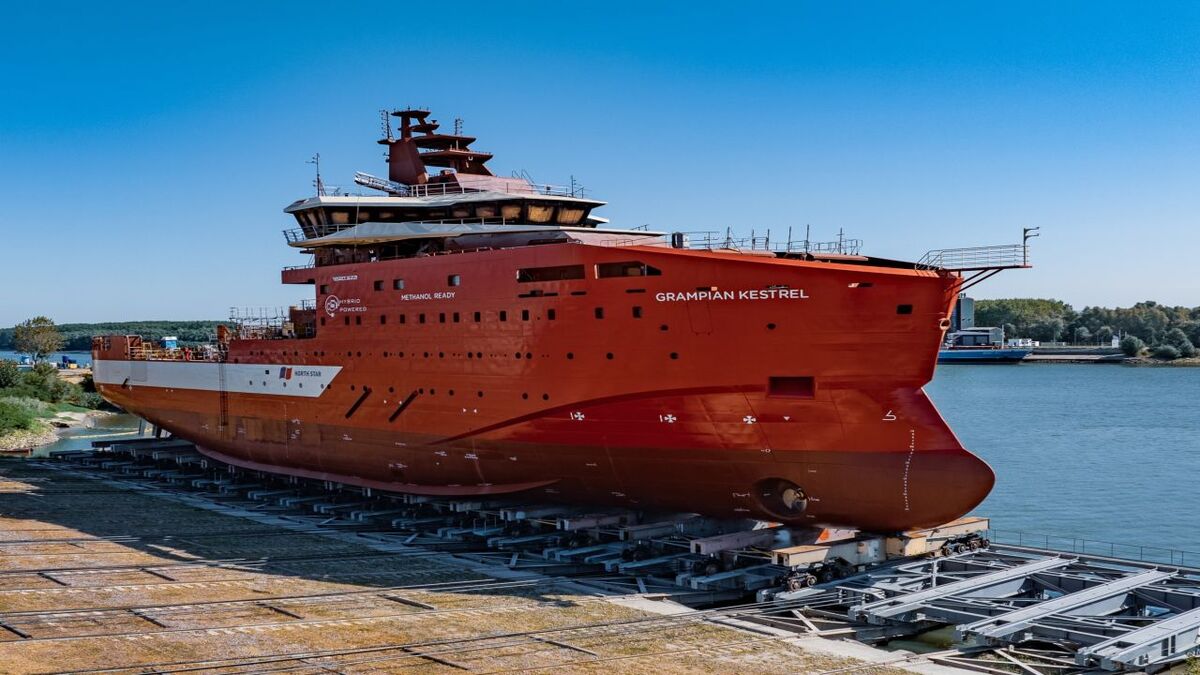Australian quantum software company Q-CTRL has demonstrated its software-ruggedized quantum sensing for navigation technology in a major field trial onboard the Royal Australian Navy’s multi-role aviation training vessel, MV Sycamore.
Quantum navigation promises a robust and reliable GPS backup that cannot be jammed or spoofed.
Q-CTRL deployed a quantum dual gravimeter, which measures tiny variations in Earth’s gravity as part of a next-generation quantum-assured positioning, navigation and timing (PNT) system operable when GPS is unavailable or untrusted.
In quantum gravimetric navigation, the quantum gravimeter continuously “sees” the otherwise invisible hills and valleys in Earth’s gravity, allowing a navigation computer to compare its observations against known gravity maps. This is similar to orienteering, where one can position oneself on a map by identifying landmarks like valleys, mountains, rivers, or roads. GPS is not needed, making it a robust backup in contested regions.
This first trial saw over 144 hours of continuous operation and successful data collection with no human intervention during real maritime operations.
Q-CTRL’s demonstration with the Royal Australian Navy departs from most previous quantum sensing field trials in that these tests mandated peak performance with full autonomy and without the addition of any special infrastructure. The sensor had to operate just as a real navigation system would operate during a defense mission.
Developed and successfully fielded in just 14 months, the dual gravimeter was installed in a “strapdown” configuration (bolted to the floor) in the space of a single server rack in a communications room onboard MV Sycamore. The sensor consumed only 180W of power – about 10 times less than a household toaster, setting a record for SWaP (size, weight, and power).
Quantum sensing leverages the physics of light and matter on the smallest scales to enable the detection of tiny signals. Because these devices work based on the fundamental laws of physics and are not affected by drift like other GPS alternatives, their outputs do not change over time, enabling new opportunities where long-term stability is essential. Generally, however, these devices are significantly degraded when taken from a research laboratory into the real world.
During the trial, the ship’s motion and engine vibrations were sufficient to cause total loss of signal using conventional operating techniques typically employed in research experiments. To address these losses, Q-CTRL’s unique software-ruggedization strategies recovered operation at near world-record levels even while MV Sycamore was underway. This outpaces international competitors interested in similar technology, says Q-CTRL.
The success of the trials opens opportunities to bring quantum-assured navigation to other maritime vessels.
“We expect the quantum sensing market to reach $3 billion – 5 billion by 2030,” said Jean-Francois Bobier, Partner & Vice President, Deep Tech, at the Boston Consulting Group. “Especially amid heightened cases of GPS denial, field-validated quantum sensors are more important than ever for navigational safety. With clear use cases and early adopters in the defense industry, Q-CTRL’s achievements pave the way for future economies of scale and broader adoption.”
Earlier this year, Q-CTRL announced successful airborne field trials of a new generation of quantum-magnetic navigation solutions, Ironstone Opal, validated for the first time to outperform comparable conventional alternatives in challenging real-world settings by 50 times.





